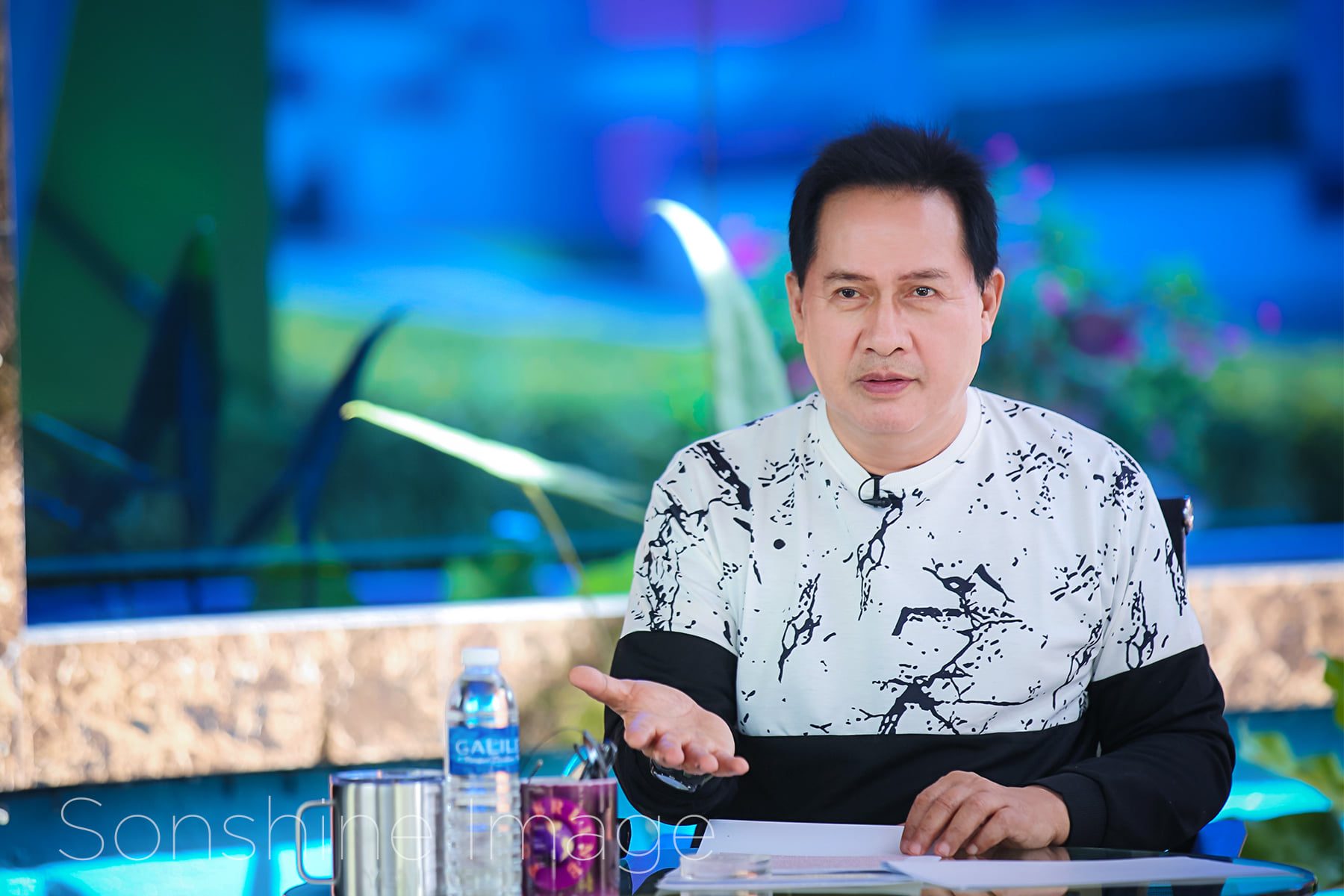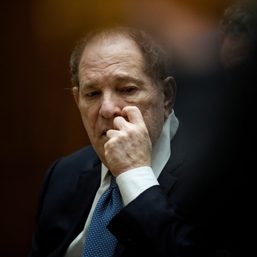SUMMARY
This is AI generated summarization, which may have errors. For context, always refer to the full article.


CAGAYAN DE ORO CITY, Philippines – The trial of controversial Kingdom of Jesus Christ (KOJC) leader Apollo Quiboloy and his church associates has been set for the first quarter of next year.
The announcement came even as the US Department of Justice brushed off remarks made by Quiboloy’s lawyers that the November 2021 indictment of the Davao City-based preacher and his associates, and the release of three wanted posters on January 31, were intentionally timed close to the Philippine elections.
Quiboloy’s lawyer in Manila, Ferdinand Topacio, told an online news conference on Sunday, February 6, that the legal moves of US authorities were meant to indirectly discredit President Rodrigo Duterte, the pastor’s close friend, and undermine the candidacies of his daughter Sara and her running mate ex-senator Ferdinand “Bongbong” Marcos Jr.
Ms. Duterte, Davao City’s mayor, is running for vice president while Marcos is a presidential candidate.
“The trial for those defendants is currently scheduled for March 21, 2023,” said Thom Mrozek, director of media relations of the US Attorney’s Office in the Central District of California (Los Angeles).
Mrozek said six of Quiboloy’s co-defendants – Felina Salinas, Guia Cabactulan, Marissa Duenas, Amanda Estopare, Bettina Padilla Roces, and Maria De Leon – were previously arrested in the US and “have been released on bond pending trial.”
Quiboloy and two other associates of his – Teresita Tolibas Dandan and Helen Panilag – are considered fugitives in the US, hence, the Federal Bureau of Investigation (FBI) published their wanted posters in late January, a move criticized by the preacher’s lawyers as unnecessary.
All of them were indicted by a federal grand jury in California for conspiracy to engage in sex trafficking by force, fraud and coercion, sex trafficking of children, marriage fraud, fraud and misuse of visas, bulk cash smuggling, promotional money laundering, concealment of money laundering, and international promotional money laundering.
If convicted for sex trafficking conspiracy, Quiboloy and his eight associates could end up in prison for life in the US.
The US Attorney’s Office said the sex trafficking conspiracy charges alone carry a statutory maximum penalty of life imprisonment each. It added that there are five substantive sex trafficking charges against the group, each with a corresponding mandatory minimum penalty of 15 years in federal prison and a likely life imprisonment sentence.
As for the fraud, cash smuggling, and money laundering charges, Quiboloy and his associates could be slapped with statutory maximum penalties ranging from five to 20 years of imprisonment each if found guilty.
Nicole Navas Oxman, a senior communications advisor for international law enforcement and spokesperson of the US Department of Justice, echoed the same message of Heather Fabrikant, spokesperson of the US embassy in Manila, in response to the remarks made by Quiboloy’s lawyers: “The FBI’s release of a wanted poster for fugitive Apollo Quiboloy follows a multi-year law enforcement effort. It is unrelated to the Philippines’ ongoing presidential election campaign.”
But Oxman told Rappler that the evidence against Quiboloy and his associates was enough for US federal prosecutors to work for their indictment late last year.
“The US Department of Justice pursues prosecutions when the evidence and the facts support violations of US criminal law and cause us to seek an indictment from the grand jury and the grand jury returns an indictment,” Oxman said.
The FBI, Attorney’s Office in California, and the justice department declined to answer questions about whether or not extradition proceedings have already been initiated to bring Quiboloy, Dandan, and Panilag to face trial in the US.
“As a matter of policy, the US Department of Justice generally does not comment on extradition-related matters until a defendant is in the United States,” Oxman said. –Rappler.com
Add a comment
How does this make you feel?










There are no comments yet. Add your comment to start the conversation.